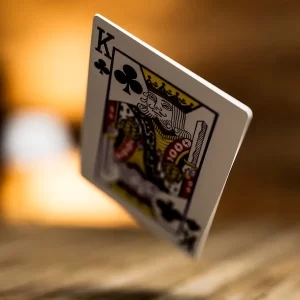Playing in poker tournaments can be an exhilarating experience for both seasoned players and beginners alike. However, to truly succeed and come out on top, it is crucial to have a solid understanding of winning strategies. In this detailed guide, we will explore various strategies that can help you improve your game and increase your chances of winning in poker tournaments. From understanding the importance of position and chip management to mastering the art of bluffing and reading your opponents, this guide will provide you with valuable insights and tips to enhance your tournament performance. So, let’s dive in and discover the key strategies that can lead you to victory in poker tournaments.
Essential Tips for Mastering Poker Tournament Strategy
Poker tournaments are a thrilling and competitive way to test your skills and potentially win big. However, to succeed in these high-stakes events, you need more than just luck. Developing a solid poker tournament strategy is essential for increasing your chances of winning. In this article, we will provide you with some essential tips to help you master the art of poker tournament strategy.
First and foremost, it is crucial to understand the importance of patience in poker tournaments. Unlike cash games, where you can buy more chips at any time, tournaments have a fixed buy-in and a limited number of chips. This means that preserving your chips and avoiding unnecessary risks is vital. Don’t be tempted to play every hand or make reckless bets. Instead, focus on playing premium hands and waiting for the right opportunities to strike.
Another key aspect of poker tournament strategy is understanding the concept of stack sizes. Your stack size relative to the blinds and antes determines the level of pressure you face. When you have a large stack, you can afford to be more aggressive and put pressure on your opponents. Conversely, when your stack is short, you need to be more cautious and selective with your hands. Adjusting your play based on your stack size is crucial for survival in tournaments.
Furthermore, paying attention to your opponents’ playing styles and tendencies is essential for success in poker tournaments. By observing how they bet, raise, or fold, you can gain valuable insights into their strategies. Look for patterns and exploit their weaknesses. If you notice a player consistently folding to aggression, consider bluffing more often against them. Conversely, if a player is overly aggressive, be prepared to call them down with strong hands. Adapting your play to exploit your opponents’ weaknesses is a key skill in poker tournaments.
In addition to understanding your opponents, mastering the art of position is crucial in poker tournaments. The later your position at the table, the more information you have about your opponents’ actions before you have to act. This allows you to make more informed decisions and potentially steal pots with well-timed bets. Conversely, when you are in early position, you should be more cautious and play stronger hands. Positional awareness is a fundamental aspect of poker tournament strategy.
Lastly, managing your bankroll is essential for long-term success in poker tournaments. Set a budget for yourself and stick to it. Don’t be tempted to chase losses or play at stakes that are beyond your bankroll. Additionally, be prepared for variance in tournament results. Even the best players can experience long stretches of bad luck. By managing your bankroll effectively, you can weather these swings and continue playing with confidence.
In conclusion, mastering poker tournament strategy requires a combination of patience, adaptability, and skill. By understanding the importance of patience, adjusting your play based on stack sizes, observing your opponents, utilizing position, and managing your bankroll, you can increase your chances of success in poker tournaments. Remember, winning a poker tournament is not just about the cards you are dealt but how you play them. So, study the game, practice your skills, and develop a winning strategy. Good luck at the tables!
Understanding the Different Types of Poker Tournaments
One of the most common types of poker tournaments is the freezeout tournament. In a freezeout tournament, players start with a fixed number of chips, and once they run out, they are eliminated from the tournament. This format requires careful chip management and strategic decision-making, as players cannot buy more chips once they are eliminated. It’s crucial to pace yourself and avoid taking unnecessary risks early on to ensure you have enough chips to stay in the game until the end.
Another popular format is the rebuy tournament. In a rebuy tournament, players have the option to buy more chips if they run out during a specified rebuy period. This format allows players to replenish their chip stack and continue playing even after a bad beat or a series of unfortunate hands. However, it’s important to note that rebuy tournaments can be more aggressive, as players are more willing to take risks knowing they can buy back in. To succeed in a rebuy tournament, it’s essential to take advantage of the rebuy period strategically and make calculated decisions to maximize your chances of winning.
Sit and Go tournaments, also known as single-table tournaments, are another popular format in poker. As the name suggests, these tournaments start as soon as all the seats at the table are filled. Sit and Go tournaments are typically faster-paced and require players to adapt quickly to changing dynamics. Since the number of players is fixed, it’s crucial to adjust your strategy based on the playing styles and tendencies of your opponents. Being observant and making accurate reads on your opponents’ actions can give you a significant advantage in Sit and Go tournaments.
Multi-table tournaments (MTTs) are the grandest and most prestigious form of poker tournaments. These tournaments can have hundreds or even thousands of players competing for a massive prize pool. MTTs require a combination of skill, patience, and endurance to navigate through the various stages and make it to the final table. In MTTs, it’s important to be mindful of your chip stack relative to the blinds and antes, as well as the changing dynamics as players get eliminated. Adjusting your strategy accordingly and being willing to take calculated risks when necessary can greatly increase your chances of success in MTTs.
Understanding the different types of poker tournaments is crucial for developing a winning strategy. Each format requires a unique approach and set of skills. Whether you prefer the freezeout, rebuy, Sit and Go, or MTT format, it’s important to study and practice the specific strategies that work best for each type of tournament. By mastering the intricacies of each format and continuously honing your skills, you can increase your chances of achieving success in poker tournaments and potentially walk away with a substantial prize.
Advanced Techniques for Bluffing and Reading Opponents in Poker Tournaments
Poker tournaments are a thrilling and competitive environment where players from all skill levels come together to test their abilities and win big. While luck plays a role in the outcome of any given hand, advanced techniques such as bluffing and reading opponents can greatly increase your chances of success. In this section, we will delve into these strategies and provide you with a detailed guide to help you develop your skills and become a formidable player in poker tournaments.
Bluffing is an essential skill in poker tournaments, as it allows you to deceive your opponents and make them believe that you have a stronger hand than you actually do. However, bluffing should not be used haphazardly. It requires careful observation of your opponents’ behavior and a deep understanding of the game. One effective bluffing technique is the semi-bluff, where you bet or raise with a hand that has the potential to improve in later rounds. This puts pressure on your opponents and forces them to make difficult decisions.
To successfully bluff, you must also be able to read your opponents and decipher their intentions. Pay close attention to their betting patterns, body language, and facial expressions. A sudden increase in their bet size may indicate a strong hand, while a hesitation or fidgeting could be a sign of weakness. It is important to note that reading opponents is not an exact science, but rather a skill that improves with practice and experience. By carefully observing and analyzing your opponents, you can gain valuable insights into their playing style and adjust your strategy accordingly.
Another advanced technique in poker tournaments is the art of deception. This involves deliberately misleading your opponents by acting in a way that contradicts the strength or weakness of your hand. For example, if you have a strong hand, you may act nervous or hesitant to make your opponents believe that you are bluffing. Conversely, if you have a weak hand, you may act confident and aggressive to intimidate your opponents into folding. Deception can be a powerful tool when used strategically, but it should be employed sparingly and with caution.
In addition to bluffing and deception, mastering the art of hand reading is crucial in poker tournaments. Hand reading involves analyzing your opponents’ actions and bet sizes to determine the range of hands they may be holding. By narrowing down their possible holdings, you can make more informed decisions and gain an edge over your opponents. Look for inconsistencies in their betting patterns and consider the community cards on the table to make accurate assessments. Remember, hand reading is not an exact science, but rather a skill that requires practice and intuition.
To become proficient in advanced techniques like bluffing and reading opponents, it is essential to continuously refine your skills through practice and study. Analyze your own gameplay and learn from your mistakes. Study books, articles, and videos on poker strategy to gain insights from experts. Participate in online forums and discuss hands with fellow players to gain different perspectives. The more you immerse yourself in the world of poker, the more you will develop your own unique style and strategies.
In conclusion, mastering advanced techniques such as bluffing and reading opponents is essential for success in poker tournaments. These strategies require careful observation, analysis, and practice. By incorporating these techniques into your gameplay and continuously refining your skills, you can increase your chances of winning and become a formidable player in the world of poker tournaments.
Bankroll Management: How to Stay in the Game and Maximize Your Winnings
First and foremost, it is essential to understand what bankroll management entails. Simply put, it refers to the management of your poker funds, ensuring that you have enough money to sustain your play and withstand the inevitable ups and downs of the game. Without proper bankroll management, even the most skilled players can find themselves going broke.
The first step in effective bankroll management is determining the size of your bankroll. This will depend on various factors, including your skill level, the stakes you play, and your risk tolerance. As a general rule of thumb, it is recommended to have at least 20-30 buy-ins for the stakes you are playing. For example, if you are playing in a $100 buy-in tournament, you should have a bankroll of $2,000 to $3,000.
Once you have established the size of your bankroll, the next step is to set clear and realistic goals. It is important to have both short-term and long-term goals in mind. Short-term goals can be as simple as aiming to cash in a certain percentage of tournaments, while long-term goals may involve reaching a specific bankroll milestone or achieving a certain level of success in higher stakes tournaments.
Another crucial aspect of bankroll management is understanding and implementing proper bankroll discipline. This means sticking to your predetermined bankroll limits and not chasing losses by playing in higher stakes games than your bankroll can handle. It is essential to resist the temptation to take unnecessary risks, as this can quickly deplete your funds and hinder your progress.
In addition to discipline, it is also important to practice proper bankroll protection. This involves setting aside a portion of your winnings and not reinvesting them immediately. By doing so, you create a safety net that can help you weather any downswings and ensure that you always have a cushion to fall back on.
Furthermore, diversifying your bankroll is a key strategy in bankroll management. Instead of putting all your eggs in one basket, consider spreading your bankroll across different stakes and game formats. This not only reduces the risk of losing your entire bankroll in a single session but also allows you to gain experience and improve your skills in different variations of the game.
Lastly, it is crucial to regularly review and reassess your bankroll management strategy. As your skills and experience evolve, so should your bankroll management approach. Keep track of your results, analyze your performance, and make adjustments accordingly. By constantly fine-tuning your bankroll management, you can ensure that you are always maximizing your potential for success.
In conclusion, bankroll management is a fundamental aspect of playing in poker tournaments. It is the foundation upon which your success as a player is built. By establishing the size of your bankroll, setting clear goals, practicing discipline and protection, diversifying your bankroll, and regularly reviewing your strategy, you can stay in the game and maximize your winnings. Remember, in poker, it’s not just about the cards you are dealt, but how you manage your bankroll that truly determines your long-term success.
The Importance of Mental Preparation and Focus in Poker Tournaments
One of the key elements of mental preparation is having the right mindset. It is crucial to approach a poker tournament with a positive and confident attitude. This means believing in your abilities and being mentally prepared for the challenges that lie ahead. It is important to remember that poker is a game of ups and downs, and maintaining a positive mindset will help you stay focused and make better decisions.
Another important aspect of mental preparation is managing your emotions. Poker tournaments can be intense and emotionally charged, and it is easy to get carried away by the highs and lows of the game. However, it is essential to keep your emotions in check and not let them cloud your judgment. This requires self-control and discipline, as well as the ability to detach yourself from the outcome of each hand.
To maintain focus during a poker tournament, it is crucial to eliminate distractions. This means finding a quiet and comfortable environment where you can concentrate fully on the game. It also means avoiding any external distractions, such as checking your phone or engaging in conversations that are not related to the game. By eliminating distractions, you can give your full attention to the game and make better decisions.
In addition to mental preparation and focus, having a solid strategy is essential for success in poker tournaments. One winning strategy is to play tight and aggressive. This means being selective with the hands you play and being aggressive when you do decide to play. By playing fewer hands, you reduce the risk of making costly mistakes and increase your chances of winning when you do have a strong hand.
Another winning strategy is to observe your opponents and adapt your play accordingly. Pay attention to their betting patterns, body language, and any other tells that may give away their hand strength. By studying your opponents, you can make more informed decisions and exploit their weaknesses.
Furthermore, it is important to manage your bankroll effectively. This means setting a budget for the tournament and sticking to it. It is easy to get caught up in the excitement of the game and start making reckless bets. However, by managing your bankroll and making calculated decisions, you can avoid going broke and increase your chances of making it to the final table.
In conclusion, mental preparation and focus are crucial for success in poker tournaments. Approaching the game with the right mindset, managing your emotions, and eliminating distractions are all essential elements of mental preparation. Additionally, having a solid strategy, such as playing tight and aggressive and observing your opponents, can greatly increase your chances of winning. By following these strategies and staying mentally focused, you can improve your performance in poker tournaments and increase your chances of coming out on top. Playing in poker tournaments requires a combination of skill, strategy, and discipline. To improve your chances of winning, it is important to understand the rules and variations of the game, develop a solid foundation of poker knowledge, and practice regularly. Additionally, employing effective strategies such as managing your bankroll, adjusting your play style based on the tournament stage, and reading your opponents can greatly enhance your performance. By following these guidelines and continuously improving your skills, you can increase your chances of success in poker tournaments.




